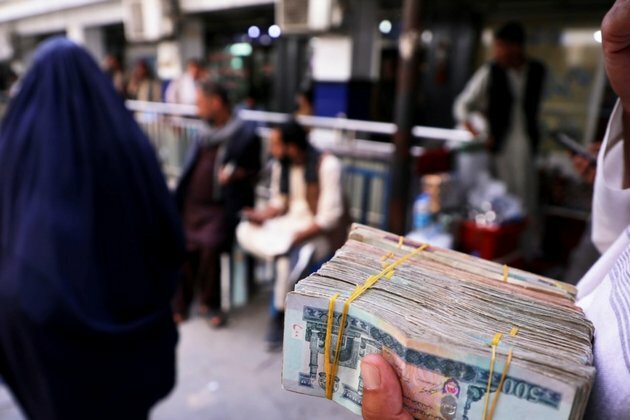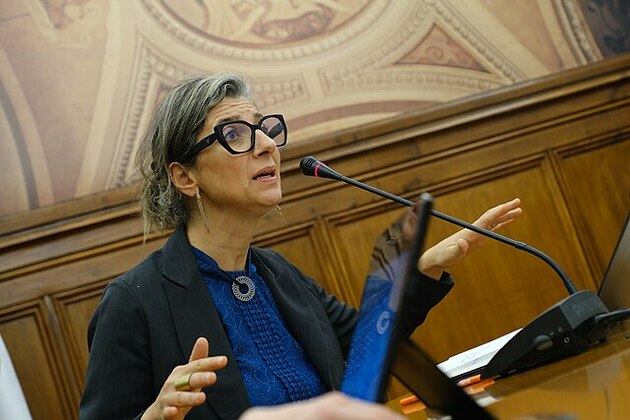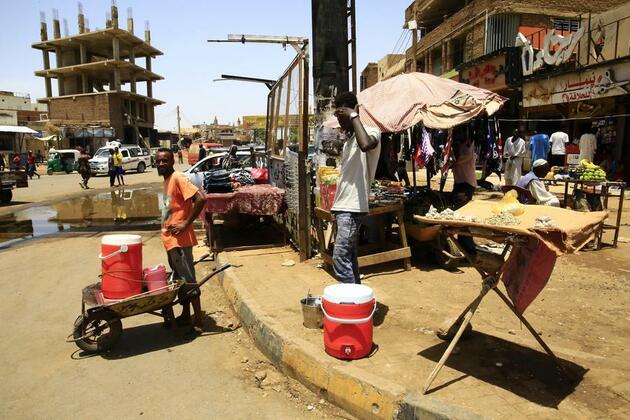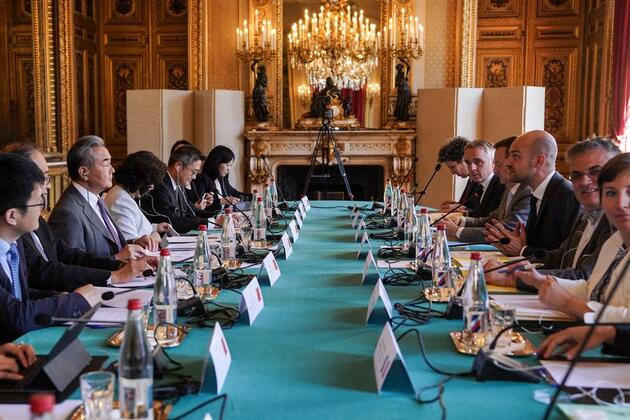Afghan Economic Crisis Worsens as Taliban Mark Anniversary
Voice of America
13 Aug 2022, 23:36 GMT+10

Washington - A year into the Taliban's de facto government in Afghanistan, the war-torn country has experienced an economic crisis that has worsened the already dire humanitarian situation there.
The economy collapsed after the Taliban seized power in August 2021 and the international community placed sanctions on the Islamist group and suspended non-humanitarian assistance to Afghanistan.
"The sanctions and frozen assets, as well as drought, are contributing significantly, bringing hardships in the form of higher prices," said Shah Mehrabi, a member of the Supreme Council of the Central Bank of Afghanistan and a professor of economics at Montgomery College in Maryland.
He added that the situation was compounded by increasing global energy and food prices that "are exacerbating the poverty for many ordinary Afghans."
According to the United Nations, half of the Afghan population, about 19 million people, experience acute food insecurity. Ninety percent of the population faces insufficient food consumption.
The World Bank reported in July that the prices of consumer products such as diesel, flour, rice and sugar in Afghanistan increased 50% from the previous year.
Afghanistan's humanitarian crisis has economic causes, Mehrabi said. "It all boils down to how the economy has been affected since the new regime came into power."
Hundreds of thousands of people lost their jobs in Afghanistan after the Taliban took control. Many businesses were closed, and most of the social services were suspended.
Just two months after the fall of Kabul, the International Monetary Fund predicted the Afghan economy will contract up to 30% by the end of 2021, as nonhumanitarian aid was suspended and foreign assets were frozen.
"The resulting drop in living standards threatens to push millions into poverty and could lead to a humanitarian crisis," IMF said in October 2021.
Humanitarian assistance
U.N. Secretary-General Antonio Guterres, addressing a virtual pledging conference in March 2022, said that "without immediate action, we face a starvation and malnutrition crisis in Afghanistan."
International donors pledged more than $2.4 billion in humanitarian assistance to Afghanistan, in addition to $1.2 billion that was pledged in September 2021.


Donors Pledge $2.4 Billion for Afghan Relief
The U.S. Treasury Department issued two licenses in September 2021 to authorize humanitarian activities and the delivery of food and medicine to Afghanistan.
In February, U.S. President Joe Biden signed an executive order authorizing the use of $3.5 billion in Afghan central bank reserves for humanitarian purposes via a trust fund, while the remaining half was subject to ongoing litigation by U.S. victims of the September 11 attacks.
"We are urgently working to address concerns about the use of the licensed $3.5 billion in Afghan central bank reserves to ensure, to see to it, that they benefit the people of Afghanistan and not the Taliban," Ned Price, U.S. State Department spokesperson, said in a news conference on July 19.
Banking crisis
About $9 billion in the Afghan Central Bank assets - $7 billion in the U.S. and $2 billion in Europe - were frozen as part of the sanctions on the Taliban.
The group has urged the U.S. to "unconditionally" release the frozen assets of Afghanistan held in the U.S.


Taliban Tout Governance Gains, Urge US to Release Afghan Assets
Mehrabi said that not having access to the reserves hurt Afghan businesses, as it resulted in a liquidity crisis in the banking sector there.
"The commercial banks do not have adequate, again, USD and Afghanis to be able to disburse for import or other purposes that ordinary Afghans or businesses would like to go ahead and engage in," Mehrabi said.
Ahmad Wali Haqmal, the Taliban's spokesperson for the Ministry of Finance, told VOA the sanctions on the banking system are the country's key economic issue.
"Our main problem is the sanctions on our banking system. Most businessmen and ordinary people suffer because they cannot send money in and out [of Afghanistan]. This is a major problem that has to be solved," he said.
A former employee of the Afghan Ministry of Finance told VOA the Taliban do not have the technical staff to run the economy.
"Most of the educated and skilled Afghans working in the ministry left the country, and the Taliban brought their own people with no skills and even education," said the former employee of the Afghan Ministry of Finance, who requested anonymity for his safety.
He noted the Taliban are thinking "it is the 1990s when they could run the government on their own."
William Byrd, senior Afghanistan expert at the U.S. Institute of Peace, told VOA the situation is "completely" different from the 1990s when the Taliban were in power.
"The challenge for the Taliban in a way is much greater than it was in the 1990s, because the economy has developed in many ways. Social service is much developed since the '90s, and there is a lot more room for decline and for things to go wrong," Byrd emphasized.
International engagement
The donors are "facing a dilemma," according to Roxanna Shapour of the Afghanistan Analysts Network, adding that they want to assist Afghanistan, but "they are not sure how to engage with the Taliban."
Shapour noted that the international community does not recognize the Taliban as the legitimate government. This "has made the economic and development assistance to the country difficult, and to an extent, impossible," she said.
She pointed out that many countries provide humanitarian assistance, but it "would not help in changing the economic conditions. ... I do not think that the economy is going to get better in the future," she said.
The World Bank's latest report stated that "Afghanistan will face a smaller economy, significantly higher rates of poverty and more limited economic opportunities for the 600,000 Afghans reaching working age every year."
"Afghanistan's economic outlook is stark," the World Bank report stated.
This story originated in VOA's Afghan Service.
 Share
Share
 Tweet
Tweet
 Share
Share
 Flip
Flip
 Email
Email
Watch latest videos
Subscribe and Follow
Get a daily dose of Greek Herald news through our daily email, its complimentary and keeps you fully up to date with world and business news as well.
News RELEASES
Publish news of your business, community or sports group, personnel appointments, major event and more by submitting a news release to Greek Herald.
More InformationInternational Business
SectionOver 60 companies named in UN report on Israel-Gaza conflict
GENEVA, Switzerland: A new United Nations report alleges that dozens of global corporations are profiting from and helping sustain...
Persson family steps up H&M share purchases, sparks buyout talk
LONDON/STOCKHOLM: The Persson family is ramping up its investment in the H&M fashion empire, fueling renewed speculation about a potential...
Shell rejects claim of early merger talks with BP
LONDON, U.K.: British oil giant Shell has denied reports that it is in talks to acquire rival oil company BP. The Wall Street Journal...
Australian PM rejects US pressure to ease biosecurity rules
SYDNEY, Australia: Australia will not ease its strict biosecurity rules during trade talks with the United States, Prime Minister Anthony...
Beijing conference spotlights esports as new engine of digital economy
BEIJING, July 5 (Xinhua) -- No dull rows of chairs and tables, no endless slides of charts and numbers -- instead, a gleaming statue...
Sudan's Khartoum strives to recover amid ongoing civil war
KHARTOUM, July 5 (Xinhua) -- After more than two years of devastating conflict, Sudan's capital Khartoum is slowly emerging from the...
Mediterranean
SectionEarly heatwave grips Europe, leaving 8 dead and nations on alert
LONDON, U.K.: An unrelenting heatwave sweeping across Europe has pushed early summer temperatures to historic highs, triggering deadly...
Turkey, France battle wildfires amid early Europe heatwave
ISTANBUL/PARIS/BRUSSELS: As searing temperatures blanket much of Europe, wildfires are erupting and evacuation orders are being issued...
Daily World Briefing, July 6
Chinese FM urges China, France to uphold multilateralism, rules of free trade China and France should champion multilateralism and...
"Big crowd, lot of expectations, he has handled it very well...": Indian bowling coach on Gill's masterclass
Birmingham [UK], July 6 (ANI): Indian bowling coach Morne Morkel hailed skipper Shubman Gill after a record-breaking outing at Birmingham,...
"You deserve all of this": Gill earns plaudits from his predecessor Virat Kohli after match-defining exploits in Birmingham
New Delhi [India], July 5 (ANI): India's batting mainstay Virat Kohli had unstinting praise in store for Test captain Shubman Gill,...
How much should America pay to keep Netanyahu in power
With Gaza still burning and corruption charges mounting, Israels prime minister arrives in D.C. looking for favors, not peace Fresh...













